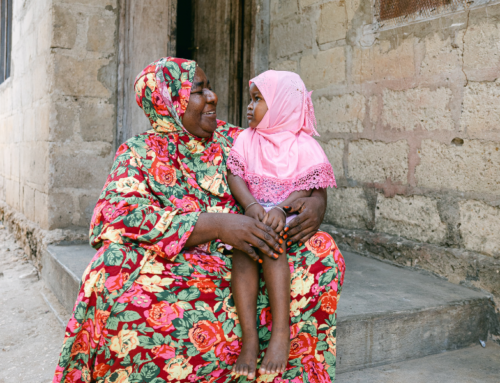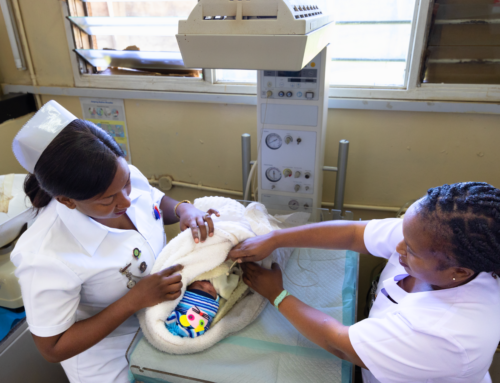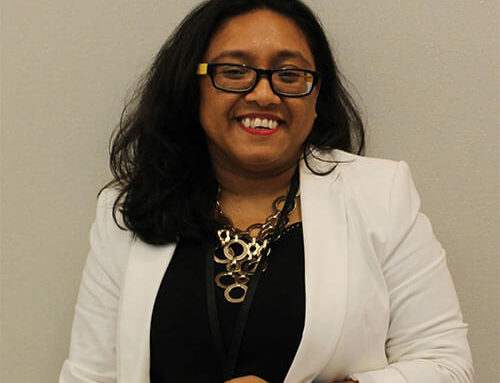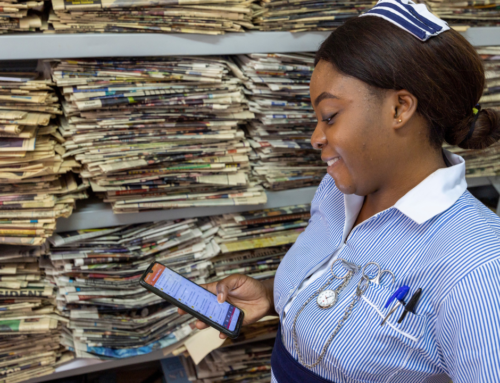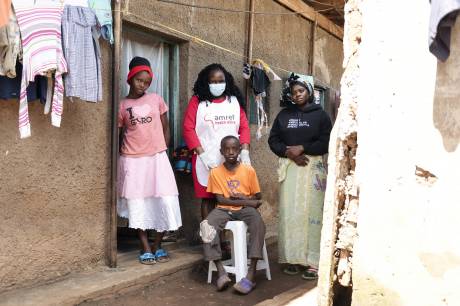
Margaret Kilonzo is a community health worker in the area of Kibera in Nairobi, Kenya, one of the largest informal settlements in Africa. She started in 1998, after she received training from Amref Health Africa and the Kenyan Ministry of Health. Since then, Margaret has volunteered her time to making lasting health change in the community she loves so dearly.
When COVID-19 reached Kibera a year ago, Margaret didn’t hesitate to continue her frontline work despite the many challenges. Here’s Margaret’s experience in her own words:
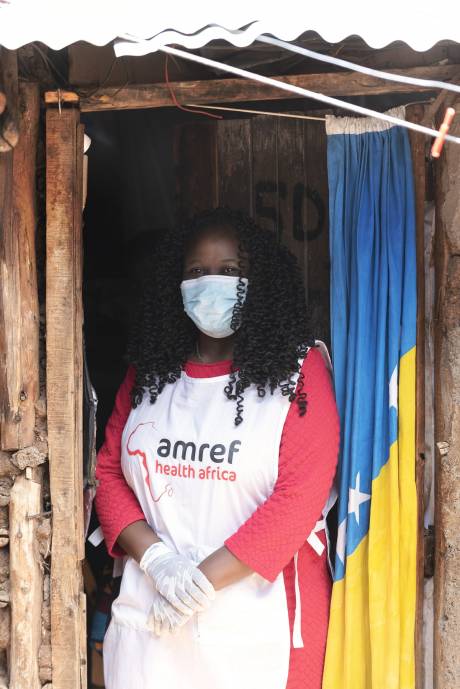 “I was born and raised in Kibera so I saw how mothers could die and get HIV infection while giving birth using unskilled birth attendants, how children were not getting immunizations, and how poor sanitation led to diseases. I decided I should bring change to my people by being a community health worker since I have a lot of passion for them, bearing in mind that Kibera is a very large slum with very high population of people from different ethnic groups from all over Kenya.
“I was born and raised in Kibera so I saw how mothers could die and get HIV infection while giving birth using unskilled birth attendants, how children were not getting immunizations, and how poor sanitation led to diseases. I decided I should bring change to my people by being a community health worker since I have a lot of passion for them, bearing in mind that Kibera is a very large slum with very high population of people from different ethnic groups from all over Kenya.
I am seeing many challenges in Kibera due COVID-19. In households there are more than six people in a single room so social distance becomes very difficult. There is an increase in teenage pregnancies since teens are idle because schools have been closed and many can’t access online learning because they don’t smartphones or even electricity. Parents have lost their jobs or daily wages because of COVID-19 so they can’t buy enough food for the family, which is leading to girls engaging in commercial sex work to earn money. That is resulting in an increase in HIV infections and unsafe abortions. Myths and misconceptions about COVID-19 are also a challenge with some community members believing that COVID-19 is not real so they don’t follow government regulations like wearing masks, keeping social distance and handwashing.
Despite all these challenges, I continuously address issues by making sure people in the households I serve have the information they need to prevent and control COVID-19. I do household visits to check on people’s health and refer them to local health facilities for essential care. I meet teenage girls in their household for counselling sessions, including on family planning. I’ve found that many girls I have counselled are able to stop commercial sex work.
Amref Health Africa has empowered me with knowledge through continuous trainings both in class and online through LEAP (a training platform that uses regular cell phones). I have used this knowledge to empower my community members in so many issues which are health-related, including COVID-19. Amref Health Africa has also improved sanitation in Kibera by constructing latrines and providing water tanks, and they’ve built a health facility where community members can access services.
I am proud to be a community health worker because if I compare how my community members used to live compared to now, I see a lot of improvement: reduction of mortality rate for mothers and children; improved sanitation; reduction in complications for people with long-term conditions like HIV, hypertension and diabetes because they are seeking ongoing health care from the facilities. I’ve also seen a reduction in gender-based violence, an increase in the number of children who are going to school, and more women delivering their babies in health facilities with trained health workers. Overall, community members are seeking health services from the clinic which has resulted in a reduction of complications and preventable deaths. I am very proud of that!”

